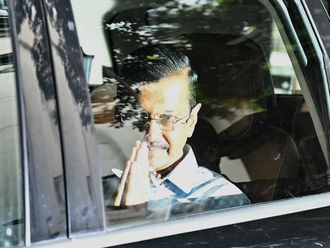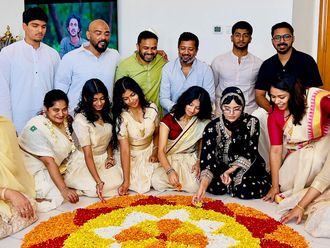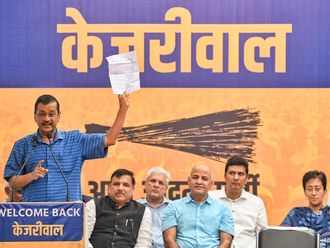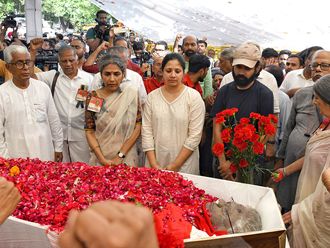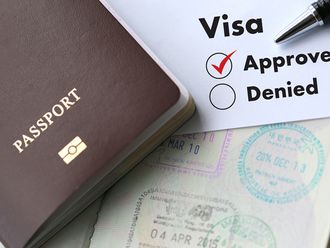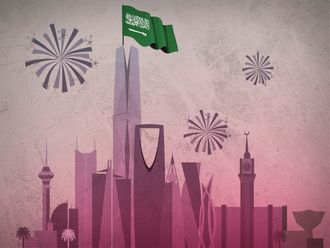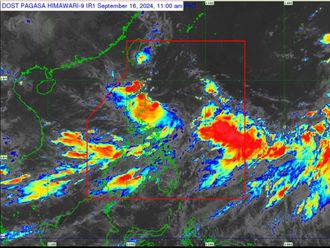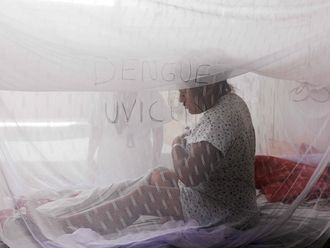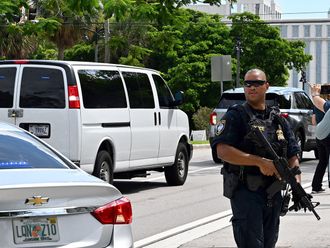Srinagar: Violence spread to new areas of Indian Kashmir on Wednesday, with three more protesters shot dead by police as the government held crisis talks in New Delhi to tackle the escalating unrest.
Prime Minister Manmohan Singh said he was "shocked and distressed" by the demonstrations engulfing the disputed Himalayan area, where 18 people died on Monday in the bloodiest day in three months of protests.
On Wednesday, police opened fire on a rally in the previously quiet town of Mendhar, a Muslim settlement in a Hindu-dominated area in the south of the region, about 210km from the town of Jammu.
"As the situation went out of control, police opened fire to disperse the mob in which three protesters were killed and at least 25 others were injured," said a police spokesman in Jammu, who asked not to be named.
For three months, young Kashmiris have thrown stones at security forces, defied strict curfews and held anti-India rallies, resulting in clashes that have now left 91 people dead.
But since the weekend, the violence has risen in intensity, with mob attacks and arson taking place, apparently fuelled by reports about the desecration of the Quran by a small group of Christians in Washington on Saturday.
Police in Jammu said the crowd had tried to attack a Catholic school in Mendhar.
Speaking at the start of a meeting of all major political parties in New Delhi on Wednesday, Singh said dialogue was the only way out of the crisis but that peace and calm had to be restored first.
"The only path for lasting peace and prosperity in Jammu and Kashmir is that of dialogue and discussion," Singh said.
"Those who have grievances against the government have to talk to the administration," he said. "But it is also true that meaningful dialogue can happen only in an atmosphere free from violence and confrontation."
Singh, who admitted last week that he was "groping" for a response, chaired the all-party meeting at his residence, with the government under pressure to show leadership.
One measure under consideration is the partial withdrawal of a tough military law in the region, which grants the armed forces immunity and is seen as fuelling a sense of injustice for Kashmiris.
The cabinet discussed this at a meeting on Monday, but said it had decided against taking a decision.
Politically, the ruling Congress party is hemmed in by the right-wing Bharatiya Janata Party (BJP) main opposition group, which sees any concession on autonomy or security as a betrayal of the nation.
A majority of residents in Indian Kashmir favour independence of the Muslim-majority region, according to a poll at the weekend.
The prime minister warned last week that there "is no royal road to success" and that he "can't pull a rabbit out of a hat" in Kashmir, which is part of the northwestern state of Jammu and Kashmir.
Many before him have tried and failed, producing a deadlock that dates back to the partition of the subcontinent in 1947, when Kashmir was split between India and Pakistan.
It has triggered two of the three wars between the nuclear-armed nations and remains an enduring source of tension in South Asia.
The Hindu newspaper criticised 77-year-old Singh in an editorial on Wednesday, saying the protests had made a "bonfire" of his "vanity project" of finding a solution to the 60-year problem.
Singh has doggedly pursued peace talks with Pakistan, argued in favour of reducing the military presence in Kashmir and repeatedly offers talks to all parties in Kashmir that reject violence.
"Each of these enterprises ended in impasse," said The Hindu. "By talking big while having little to offer, New Delhi has unwittingly fanned the flames," it said.
"Firm, generous-spirited action to win over the people is needed."
Elsewhere in Kashmir, police imposed a strict curfew in all major cities and other trouble spots, leading to complaints from residents that they were running low on food.
"You can't starve the entire population. They are trying to give us collective punishment," Ajaz Rasool, a retired government official, said by telephone from his home in downtown Srinagar.
Have your say
Why do you think the government is failing to bring peace to the valley? What can they do to address the Kashmiri’s concerns? Tell us at readers@gulfnews.com click on the link below to post your comment.


